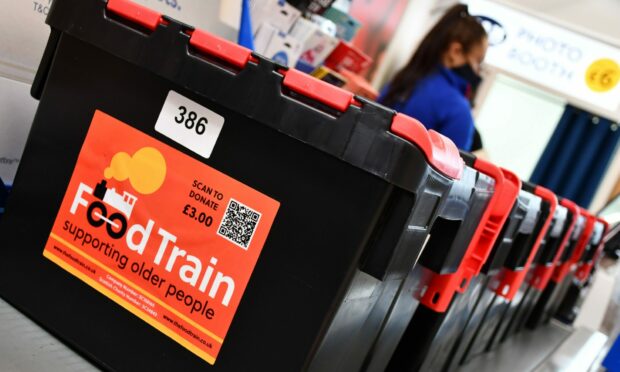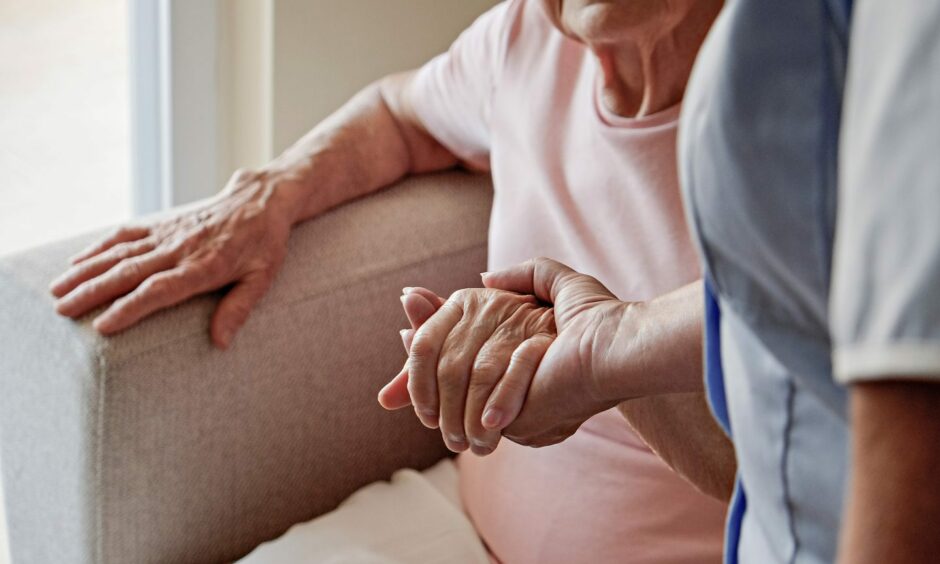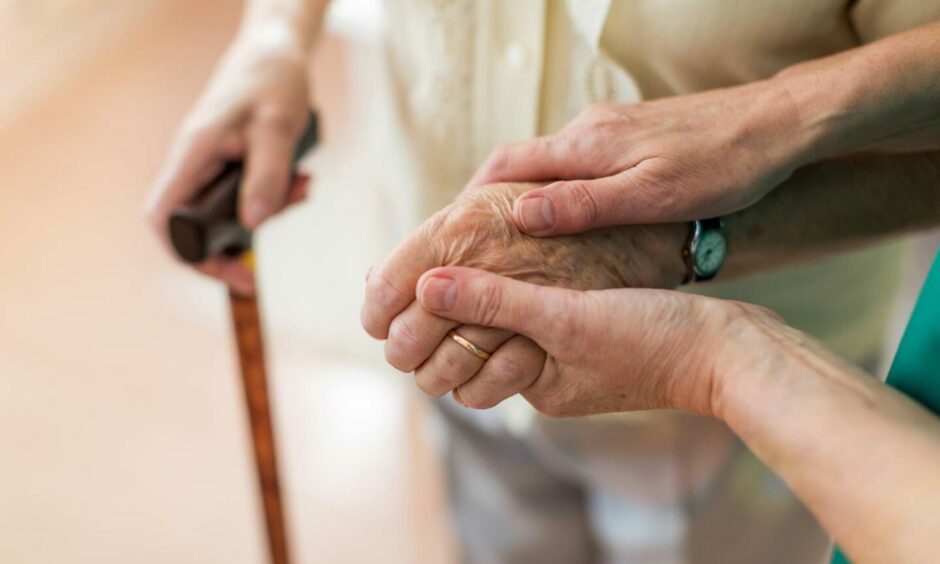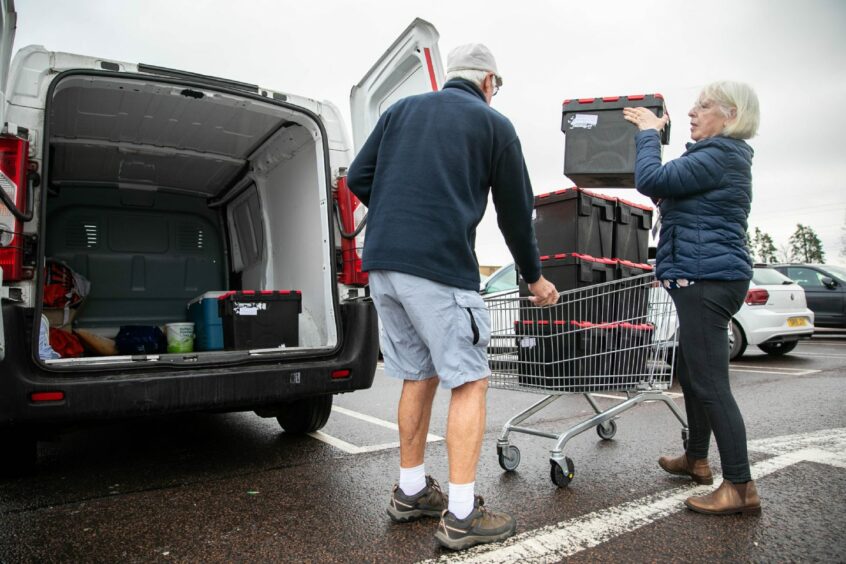A range of Tayside organisations are joining forces to help fight malnutrition in older people.
Local charity Food Train has launched a campaign for Dundonians to help support the supply of lifeline shopping deliveries to the over-65s.
It comes after their recent survey reveals a quarter of their members nationally are buying less food to save money for heating.
And health services have also highlighted the issue of malnutrition, how you can spot the signs and where to go for help.
Malnutrition occurs when a person’s diet does not meet their nutritional needs.
And this year’s Malnutrition Awareness Week – which runs until October 16 – focuses on working together to raise awareness of preventable malnutrition.
Who is most affected by malnutrition?
Older people are at higher risk than younger people.
Official estimates place one in 10 older people as either at risk of or being malnourished.
And older people living at home are at an increased risk of becoming malnourished due to a variety of reasons.
These include a decreased sense of taste and smell, restricted mobility, and feelings of loneliness.
NHS Tayside’s dietetic consultant for public health, Dr William Cook, says it often remains undetected and untreated.
“Malnutrition, in terms of under-nutrition, is a significant public health concern.
“We know those who are malnourished are at increased risk of falls, pressure ulcers, infections and have three times the number of hospital admissions.”
How can you spot the signs?
NHS Tayside and Dundee Health and Social Care Partnership have joined forces with Food Train.
They want to make sure those early signs of malnutrition are spotted to stop people falling ill.
The organisations have collaborated and developed a series of eight short training videos and a workbook.
They cover topics such as what can cause malnutrition, how to spot signs and symptoms and simple practical tips to boost appetite.
Jen Grant, project dietitian at Food Train Eat Well Age Well, says: “Malnutrition is largely preventable and treatable through early intervention and screening.
“Carers and care organisations have a vital role to play in both identifying those at risk of becoming malnourished and supporting older people living at home.
“If everyone working in community settings with older people better understood the signs of malnutrition, we could spot and tackle issues sooner.
“These videos are an important step towards achieving that goal.”
Who can I contact if I have concerns?
Carers, health and social care staff and members of the public who are looking after an older person can contact NHS Tayside’s Get Nourished advice line.
Get Nourished can be reached by calling 01738 450556 (Monday 9.30am to 12.30pm, Wednesday 3-6pm, Friday 12-3pm).
You can also email tay.getnourished@nhs.scot
Help by sponsoring a box of food
Dundonians can also directly support older people by sponsoring boxes which carry lifeline shopping deliveries to over-65s in their homes.
Food Train also provide a weekly grocery shopping service and other practical and social support to help older people live independently at home.
They’ve launched a fundraising campaign called BOXtober.
A £10 donation will sponsor a box of essential groceries for 12 months.















Conversation